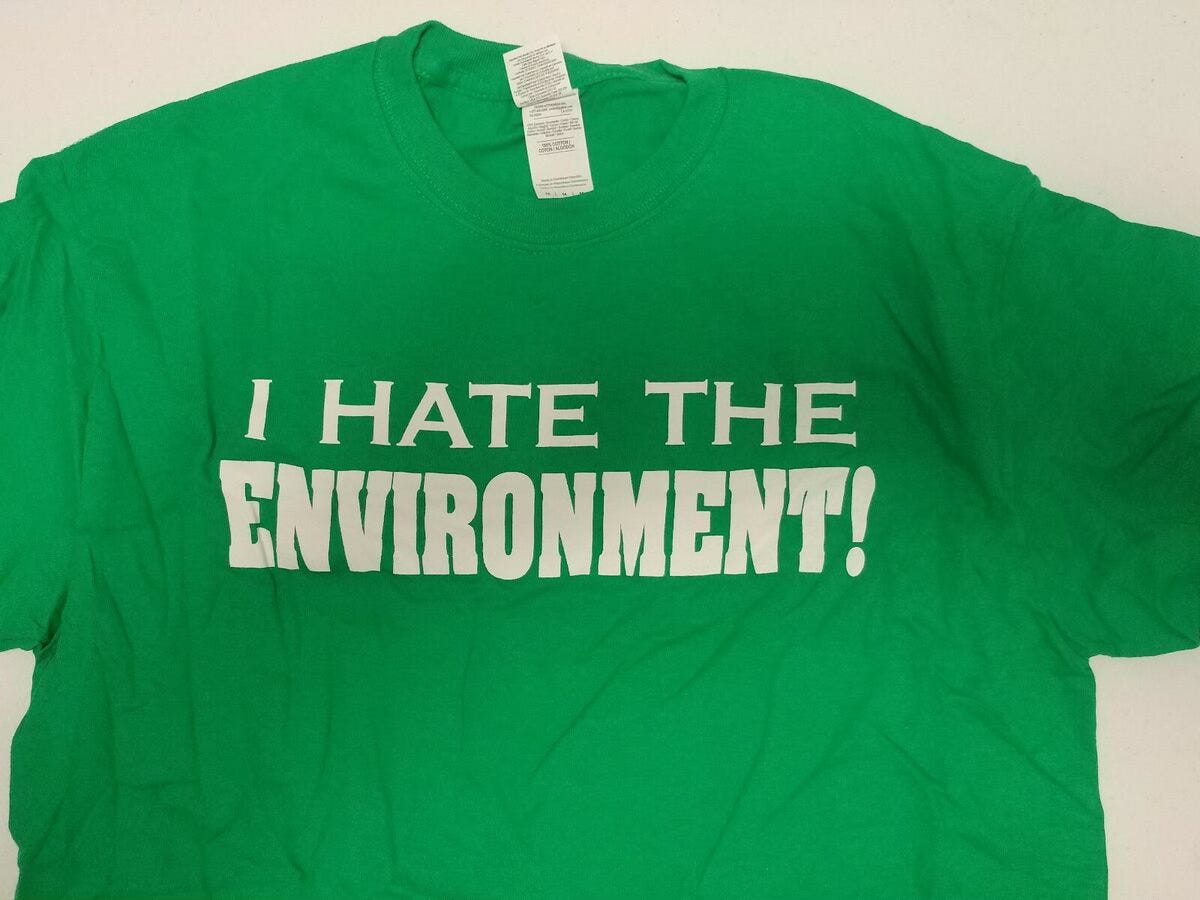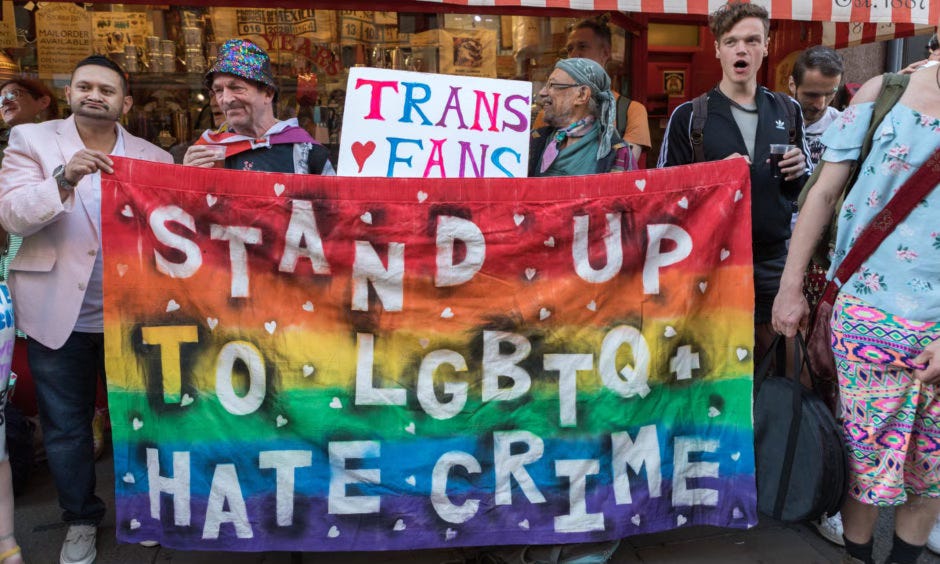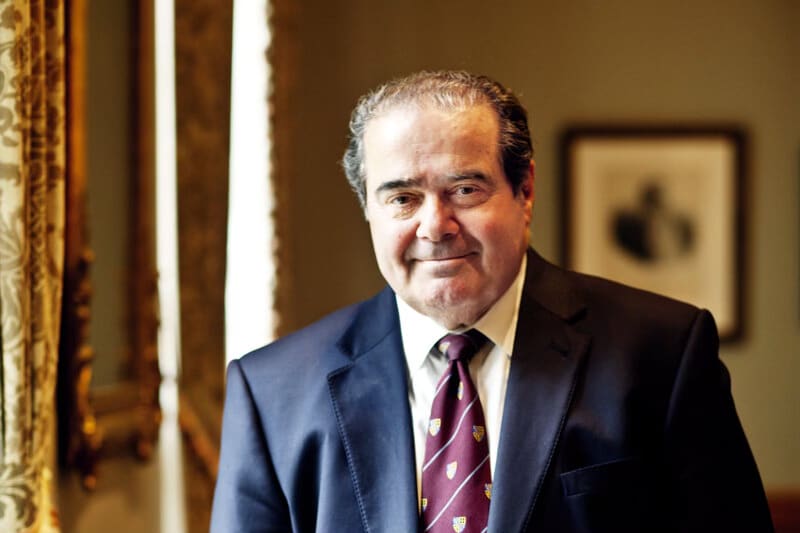Helping Those In Need
Before progressives during the New Deal era nationalized welfare and centralized its administration, Americans did not ignore those in need. They helped those in need.
Here’s a familiar scenario: Progressives create yet another dubious government program. The real reasons for the program are to buy votes, hire more unionized bureaucrats, launder more money taken from taxpayers into the campaigns of Democrats, shrink the realm of individual liberty by expanding government power and control, and reward crony friends with lucrative contracts, subsidies, waivers, and exemptions.
But that’s not what progressives say.
They say the program is about X. The program is labeled X, after all, so how could it be about anything other than X, they ask gullibly? Then blink.
And what happens the moment you question or openly oppose the program? You know what happens: You’re instantly branded as someone who doesn’t care about X. Or worse: You’re a hater. You hate X! Everyone knows you hate X because you don’t support the new program progressives claim to be about X.
Right?
For example, progressives create a government program they say will help the environment. And, everyone wants a healthy, clean environment.
There’s not an American alive who wants dirty water or polluted air. There’s not an American alive who wants thousands of animal species to go extinct. No Americans want entire forests being consumed by catastrophic fires. No Americans want a global climate that’s incompatible with human life.
Hater
Yet, you challenge the government program because you’ve discovered it is wasteful, brimming with corruption, it doesn’t actually achieve the results progressives have promised, and it is unconstitutional, to boot.
Instantly you are branded as someone who doesn’t care about the environment. You are selfish. You don’t care if others drink dirty water or breathe dirty air, probably because you hate people as much as you hate the environment. You’re a hater.
Or, progressives create a government program to fast-track incompetent, fraudulent lesbian and transexual scholars into top academic-administrative positions within American colleges and universities.
You, then, question the program because you suspect these individuals really aren’t scholars at all—they’re being used to fulfill DEI quotas simply because of the atypical (or deviant) sexual activities in which they engage—and they don’t actually promote the intellectual, scientific, and scholarly goals of the educational institutions that employ and promote them.
What happens?
Instantly you are branded as someone who hates lesbians and men who threaten those unwilling to call them women. You are now a hater, simply because you questioned a highly questionable progressive program.
And on, and on, and on. There are progressive programs that provide taxpayer subsidies for other people’s kids to eat breakfast before school starts, subsidies for rich people to buy high-end electric vehicles, and subsidies to plant trees in neighborhoods where black Americans live.
Question any of them and you’re a hater.
This progressive tactic is more than merely annoying. It’s become a real danger for the future and fate of our nation. The kneejerk reaction of equating opposition to a wasteful, counterproductive government program with being a hater has been adopted by much of the established, legacy media.
The prospect of being smeared by progressive wings of the Democratic Party disguised as local and national news services causes many Americans—including and especially many business owners—to keep silent about government waste, corruption, incompetence, and worse.
Poverty
This has long been the case with progressive government programs that allegedly aim to reduce poverty in the United States. Question any program that’s labeled “antipoverty” and many fellow Americans assume you are an uncaring elitist—probably a heartless capitalist—who hates the poor.
The subject of poverty in the United States is particularly interesting for several reasons. The United States as a whole, and the unmatched freedom found within the United States from the time of the American Founding until FDR’s New Deal of the 1930s and 40s, was the greatest antipoverty program in all of human history.
For many decades after the American Founding, free markets, free trade, production, innovation, competition—all fueled by entrepreneurship and made possible by a regime of liberty—lifted millions of people out of poverty into a comfortable and growing middle class, or better.
Before progressives during the New Deal era nationalized welfare and centralized its administration in Washington DC and state capitals, the United States inherited a noble tradition of providing assistance, voluntarily, to fellow citizens and others in dire straits.
Americans did not ignore those in need. They helped those in need.
That tradition stretched back to the colonial period, even before the American Revolution, and remained intact, robust, and eminently helpful for those who most needed temporary help throughout the 19th and into the early 20th century.
There were important differences between the earlier forms of assistance for individuals and modern, progressive, New Deal, forms of welfare that came later. For those who genuinely care about helping those in need—and for those tired of being called a hater simply for challenging wasteful government programs—let us step back from the noise of daily partisan politics and consider those differences.
Local Versus National
Earlier forms of assistance tended to be local, where citizens within a community knew which families had suffered unexpected loss and truly needed temporary help versus those who simply didn’t want to work.
This allowed people in a community to show real love and caring by helping those truly in need, while making clear that laziness was no claim to other people’s property.
Progressive, New Deal welfare is centralized in DC and state capitals, administered by professional bureaucrats who often know little or nothing about the personal circumstances in local communities and work at government agencies that incentivize adding more people to the rosters of welfare recipients.
The results include citizens who need assistance and don’t receive any, citizens who don’t need aid and get it, noncitizens who shouldn’t qualify for taxpayer-funded aid yet get it anyway, and unionized bureaucrats who get pay raises and promotions for adding dependents to the dole rather than helping citizens become productive, self-reliant, and independent.
Able-Bodied Versus Disabled
Earlier forms of assistance discriminated between the many who are able-bodied and the few who are disabled.
People within a local community know who among them is able to work and who is not, as well as who is willing to work and who is not. Typically, able-bodied people were offered assistance only in exchange for work, while families and citizens of various communities almost always helped to care for those few who were truly disabled and incapable of working.
Many forms of progressive, New Deal welfare over the past century have required no work because progressives argue that assistance provided by government is a “right” or something to which citizens are “entitled.”
An able-bodied American today can receive subsidized health care insurance, for example, paid by other citizens, and never be asked to work. He won’t even be asked to watch his diet, exercise, and take care of his own health!
What a stunning contradiction: In our age of progressivism, an American today has no obligation whatsoever to take care of his own health, yet taxpayers do. They are expected to take care of an individual’s health, while the individual is not expected to take care of his own health, or even try!
An American today can receive subsidies for education, housing, food, and all kinds of other goods and services, all paid by others, and never be asked to work.
Temporary Assistance Versus A Way Of Life
Earlier forms of assistance typically provided the bare minimum for survival because it was temporary. This often meant eating meager meals and sleeping in a “poor house” that could be anything from a stand-alone building to the basement of a local church to a farmer’s barn.
People who received earlier forms of assistance were highly incentivized to be productive and quickly leave the life of assistance—because the life of assistance was unpleasant.
Progressive, New Deal welfare aims to provide assistance that equates to some kind of common American standard of living—because some kind of common American standard of living is now a “right,” no longer something to be earned.
This is why many advocates for government welfare and various subsidy programs argue that the poor deserve more entitlement payments from government.
In the Newspeak of progressivism, poor people are victims; victimhood is virtue; virtue should be rewarded, honored, celebrated, and subsidized. If the poor are the most virtuous among us, progressives conclude, then the poor should be given what others have produced.
Voluntary Versus Involuntary Giving
Earlier forms of assistance were usually voluntary. Those who gave assistance did so because they wanted to give. Those who received assistance knew who was giving to them.
It was natural for those who received to feel obligated to pay back those who gave, someday, some way.
No one, back then, thought that any kind of assistance or help from anyone was a right. Everyone understood that any form of assistance was a gift and they appreciated whatever help they received.
The feeling of obligation was yet more incentive for those receiving assistance to work and be productive so that they could pay back the debt they owed, or, at a minimum, so that those who received assistance one day could be in a position to give assistance to someone else some other day.
Progressive, New Deal welfare is not voluntary. It is commanded by government policy, enforce by government power.
Taxpayers are forced by law—and threats of courts, fines, and prison—to pay taxes and support progressive, New Deal welfare programs, whether you as an individual want to support those programs or not.
The result? Those who give become ubiquitous, and therefore unknown. Those who receive feel no obligation to pay anything back to anyone because they think the assistance they’ve received through government programs is a “right” or an “entitlement.” Further, recipients don’t even know who they owe should they ever want to pay someone back.
Supreme Court Justice Antonin Scalia (b. 1936 – d. 2016).
In 2013 speech, then-Supreme Court Justice Antonin Scalia described our situation aptly: “The transformation of charity into legal entitlement has produced donors without love and recipients without gratitude.” He was right.
Love
Earlier forms of assistance for individuals was all about people helping other people in times of terrible temporary need, people facing difficult, trying circumstances beyond their control: a fire, a flood, a crippling accident, a disease, etc.
These were acts of love and care.
They were also acts of mutual self-interest: A citizen was likely to help someone near who suffered some great misfortune because that citizen knew a great misfortune might visit him someday and he might find himself in need.
Earlier forms of assistance had a beautiful quality about them: They helped those who most needed help, and, at the same time, they incentivized people to work productively and improve their lives. Those who received temporary help were usually better years later because of that assistance. And those who gave were better because they were helping others to become better.
Prior to the New Deal and the progressive welfare state, chronic generational poverty—meaning generation after generation of poverty within a family—was never considered a claim for assistance from fellow citizens. The reason is that Americans had discovered the ultimate solution to the problem of poverty: Freedom, which includes the freedom to create wealth.
Americans knew that wealth must be created. They knew that a person creates wealth by producing something others value, some service or good that others want, need, or appreciate.
A family of persons who are busy creating wealth by producing value for others, in a civic environment of freedom and strict legal protections for private property, is a family that’s not chronically poor. Further, a person who is busy creating wealth by producing value for others is a person not prone to idleness and the many pathologies that idleness fuels.
In this way, older forms of assistance, from individuals for individuals, yoked together love for each other with the civic conditions and personal encouragement for human beings to create wealth, escape poverty, and avoid destructive behaviors by staying busy producing value for neighbors, friends, and fellow citizens.
Businesses and Other Organizations
We have focused mainly on aid and assistance for individuals in need. Sometimes, of course, a business or some other kind of organization—such as a church, a school, a hospital, a library, or a civic organization—might need help.
Pre-progressive, earlier Americans offered that kind of help, too.
For businesses with a sound plan to be profitable, banks or individuals would offer loans with the expectation of being paid back. For other kinds of organizations, people would go to their families, friends, and neighbors and ask for help.
These forms of business and organizational aid were, again, voluntary. No one viewed a loan or a grant as any kind of “right.”
These voluntary gifts and loans brought citizens within a community together; they didn’t divide citizens because they didn’t incentivize bad behaviors or social pathologies. They incentivized responsibility and productivity.
Political Power
Progressive, New Deal welfare has had from its inception the same goals virtually every government program has: To buy votes, hire more unionized bureaucrats, launder more money taken from taxpayers into the campaigns of Democrats, shrink the realm of individual liberty by expanding government power and control, and reward crony friends with lucrative contracts, subsidies, waivers, and exemptions.
Progressives centralized the administration of government assistance during FDR’s New Deal in the 1930s and 40s. Lyndon Johnson then ratcheted-up the federal subsidy state with his Great Society programs of the 1960s and his War on Poverty. Since then, no one has benefitted more from federal and state anti-poverty programs than federal and state politicians, unelected bureaucrats, crony contractors, and elites with political connections.
The poor? Not so much.
Right now, today, in 2024, numerous cities across the United States look more like third-world encampments of poor, homeless people living in tents and shanties than they do modern, cosmopolitan metropolises.
The rise of the progressive, New Deal welfare state has correlated with and has been among the causes of the rise of all kinds of terrible social pathologies, from increased rates of addiction to child abuse, sexual abuse, spousal abuse, fatherless children, divorce rates, property crimes, random mass murders of strangers, teenage suicide, an array of mental health problems, and a total dissolution of anything resembling civic and moral virtue.
These outcomes have fueled one of the most hurtful, destructive cycles in history: As progressive government programs fuel increased dependency, more idleness, and more social pathologies, those in government and their progressive supporters insist that the cure is: more progressive government programs!
This cycle has now become a gigantic political vortex swirling all around us. It is very much a test of the hearts and brains, the chests and heads of modern Americans, to see if we can escape this vortex, or stop it, before going completely under.
You’re Not A Hater
If you’re like me and you question or challenge progressive programs, good for you. We need more Americans like you willing to question today’s progressive zeitgeist.
There are many good reasons to challenge programs that fuel corruption, waste other people’s money, and never achieve the results that have promised. It certainly does not mean you are a hater, even though many modern American progressives—who confuse having a short temper and no tolerance for disagreement with intelligence—will be quick to say you’re a hater.
Be better than them. You are better. You want truth, not partisan slogans, cheers, and jeers. They might despise you because you want to know why so many support policies and programs that are so bad. They will view you the way mediocrity views excellence: With envy and anger.












